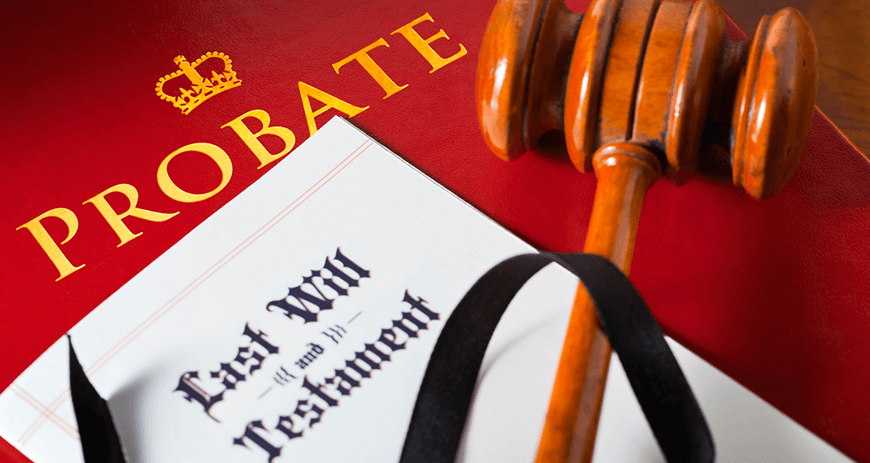Wills & Probates
Have you arranged for your child?
Majority of the people know that a will enables them to determine who will get their property when they pass on. If you die unwillingly, the state decides who gets what, irrespective of their conditions. Likewise, if you become mentally incapable, you can appoint someone else to deal with your financial affairs and make health decisions. But relatively few people have such arrangements in place. It is important to have a lawyer’s will or power, but it is more important to do it correctly.

- Do you have a current will, which contains all your wishes?
- Have you an old will, that needs modification?
- Have you made sufficient and legally binding arrangements for your friends and family?
- Have you arranged your child properly when the unexpected happens?
K.J. & CO. Solicitors offers a quality service tailored to the needs of our clients at competitive fixed rates that offer tranquillity of mind. We offer home visits, emergency and out-of-hours service (ask us for these extra services). We additionally provide free seminars several times a year with valuable information on these pivotal issues. Our seminars are well received as they simplify issues relating to wills and probate, and highlight the advantages of preparing wills, and powers of attorney, etc. and provide a forum for questions and answers. Contact us for more information if you are interested in organising a free seminar (you will need an appropriate venue and a minimum of 10 participants).
Synopsis of our Services:
- Probation of application and administration of property
- Have you an old will, that needs modification?
- Lasting Power of Attorney ( property /financial / health care)
Stage one
Work involved in obtaining a Grant includes:
- Initial meeting and fact find
- Advising on process – if there is no Will we will advise on who is entitled to apply for the Grant and how the estate will be divided
- Drawing up a schedule of assets and liabilities
- Writing to the various banks where the deceased had accounts, or institutions such as unit trust managers where they had investments
- Contacting credit card providers and utility companies to ascertain any sums due to/from the deceased
- Arranging valuations of assets, e.g. property, shares etc.
- Preparation of an Inheritance tax (IHT) return (if required)
- Preparing the Grant Application (online or paper, as applicable)
- Arranging to pay Inheritance Tax (if applicable)
- Obtaining the Grant
Please note:
The timeframe for a Grant to be issued depends on the type of Grant, but the average timeframes range from 11 weeks to 27 weeks as of Q1 2024.
IHT400 not required and no IHT payable - you are providing all information yourself
Likely fees: £2,500 to £3,000 and Additional Costs (examples below).
Likely timescales – ready to apply for the Grant about 4 weeks after you have provided the information, provided it is comprehensive.
IHT400 not required and no IHT payable - we are required to obtain asset information and correspond with third parties
Likely fees: £3,000 to £4,000 and Additional Costs (examples below).
Likely timescales – ready to apply for the Grant about 8-12 weeks after you have provided the information about the deceased’s estate to enable us to make enquiries.
IHT400 required but no IHT payable - you are providing all information yourself
Likely fees: £4,000 to £5,500 and Additional Costs (examples below).
Likely timescales – ready to submit form IHT400 about 6 – 8 weeks after you have provided the information, provided it is comprehensive. HMRC then take around 4-6 weeks to come back to us before we can finalise the application for the Grant.
IHT400 required but no IHT payable - we are required to obtain estate information
Likely fees: £5,000 to £7,000 and Additional Costs (examples below).
Likely timescales – ready to submit form IHT400 within 12-24 weeks. HMRC then take around 4-6 weeks to come back to us before we can finalise the application for the Grant.
IHT400 required and IHT payable - you are providing all information yourself
Likely fees: £5,000 to £7,000 and Additional Costs (examples below).
Likely timescales – ready to submit form IHT400 within 8-16 weeks after you have provided the information, provided it is comprehensive. HMRC then take around 4-6 weeks to come back to us before we can finalise the application for the Grant.
IHT400 required and IHT payable - we are required to obtain estate information
Likely fees: £6,000 to £8,500 and Additional Costs (examples below).
Likely timescales – ready to submit IHT400 within 16-24 weeks. HMRC then take around 4-6 weeks to come back to us before we can finalise the application for the Grant.
IHT may be payable on an estate and is not included in our estimate of fees and costs. IHT is a complicated tax with many liabilities, exemptions and reliefs. We will assess the IHT position of an estate once we have the relevant information. You can find out more about when Inheritance Tax is payable here.
IHT is generally payable before a Grant is applied for. If the estate includes property or a controlling shareholding in a company, typically only one-tenth of the IHT attributable to the property is payable prior to the Grant being issued with the balance payable over the next 10 years (interest is charged on the outstanding balance) or on the sale of the property.
Stage Two
Following the Grant being issued, the personal representatives must gather in the assets of the deceased, discharge any liabilities, and then distribute the estate in accordance with the Will or the intestacy rules. The work usually involved is:
- Preparation of closure/transfer forms
- Corresponding with banks and organisations to release funds
- Selling property, shares, and investments
- Collecting in funds
- Settling liabilities
- Dealing with any income received and preparing R185 forms
- Drawing up estate accounts
- Dealing with distribution – including verifying beneficiary ID and information and carrying out bankruptcy/insolvency searches
Simple, non-taxable estate with a small number of beneficiaries
Likely fees: £2.500 to £5,000 and Additional Costs (examples below).
Likely timescales – 6-12 weeks from receipt of the grant (excluding sale of property)
Larger, non-taxable estate with a small number of beneficiaries
Likely fees: £5,000 to £10,000 and Additional Costs (examples below).
Likely timescale: 12-24 weeks from receipt of the Grant (excluding sale of property)
The following Additional Costs are likely to be incurred:
Grant application fees: £300 (if the estate is over £5,000)
Additional copies of the grant (per copy): £1.50
Client and beneficiary ID checks: £8.00 plus VAT per person
Bankruptcy search: £2.00 plus VAT per beneficiary, per distribution
Bank transfer fees (UK transfers): up to £35.00 plus VAT per transfer
Bank transfer fees (international transfers): £5o.00 plus VAT per transfer
Land Registry documents: £3.00 plus VAT per document
VAT is chargeable at 20%.
The following Additional Costs may be incurred, depending on the estate, but these are estimates
Will search: £140
Valuation fees: Dependent on valuer
Financial Asset Searches: £200
Statutory advertisements for creditors: £200 – £300
Registration of complex estate with HMRC: £500 plus VAT
Registration of estate trusts with HMRC: £350 – 500 plus VAT per trust
The following complicating factors will increase our fees and the time involved in dealing with the estate:
- Further properties or assets
- Foreign property or assets
- Multiple beneficiaries
- Charity beneficiaries
- Business property relief or agricultural property relief applies
- Lifetime gifts
- The executors are disposing of assets with a value over £500,000 (whether or not there is a liability to Capital Gains Tax)
- Assets increasing in value significantly between date of death and date of sale
- Missing or damaged Will – affidavits required, may need to locate individuals
- Missing beneficiaries or non-responsive/un-cooperative beneficiaries
- Missing share certificates – additional paperwork required
- Missing documents relating to death of first death when a nil-rate-band needs transferring
- Unusual investments which require more paperwork, e.g. gift and loan trusts
- Income tax affairs are not up to date
- There are a lot of income producing assets or gross income is received during the administrations, which makes dealing with the income position more onerous.
- There are a substantial number of creditors
- A dispute arises between executors or beneficiaries
- We are required to carry out work normally carried out by family members such as organising valuation of property and jewellery or clearing the property
- If a legal claim is outstanding against the deceased or a claim is made against the deceased’s estate or the deceased’s will is disputed
Examples of complicating factors on taxable estates only
- HMRC decide to investigate any part of the IHT400 form
- Business accounts are not up to date or there is other missing information
- The 36% rate for IHT applies due to charity beneficiaries
- Quick succession relief applies
- There are a large number of lifetime gifts
- A loan is required to fund the Inheritance Tax
- Assets increasing or reducing in value significantly between date of death and date of sale
Hourly rates of our solicitors
If complicating factors arise then we will charge for the extra time involved based on our standard hourly rates set as set out below.
Where additional charges apply in such circumstances we will provide you with an accurate estimate of charges for each element of additional work before undertaking that work for you.
Under family and divorce page please add:
How long does a divorce take?
On average in England and Wales, the divorce process takes between six-eight months. This takes into account the need to sort out issues with money, property and children. Because of the 20-week cooling-off period, a no-fault divorce will take a minimum of six months.
What are my rights in a divorce?
You have some basic rights enshrined in law regarding divorce. You will be legally entitled to a divorce provided you have been married for at least one year, meet the jurisdiction requirements. We can advise you on your specific circumstances and how best to proceed.
If there are children of the family then The Children and Families Act 2014 introduced the presumption that, unless the contrary is shown, the continued involvement of a parent in a child’s life will be beneficial to that child. We can guide and represent you in order that the best arrangement possible can be put in place to ensure the ongoing welfare of your children are met.
With regards to a financial settlement on divorce, the court seeks to be fair, which can often mean a 50/50 split of the matrimonial assets, unless needs mean one party has a claim for more. Once we are fully aware of the extent of your matrimonial assets, we will provide you with detailed advice on what entitlements you will have. This will enable you to confidently move forward in either agreeing a settlement with your former spouse, or in issuing court proceedings to secure your interests.
What is a financial settlement?
A financial settlement, officially known as a financial settlement agreement, is an arrangement between two adults who have agreed to separate legally. It is required when divorcing couples have a number of joint financial assets. The divorce settlement is a fair and equal agreement on splitting the assets. The following assets are included when calculating the financial settlement:
- the family home and any other property
- savings, investments and trusts
- joint bank accounts
- vehicles
- jointly owned business assets
- pensions
It also covers how you’ll repay debts and organise child maintenance or spousal maintenance payments.
” This firm does not currently charge VAT for our services, if this changes we will let you know in writing”.
